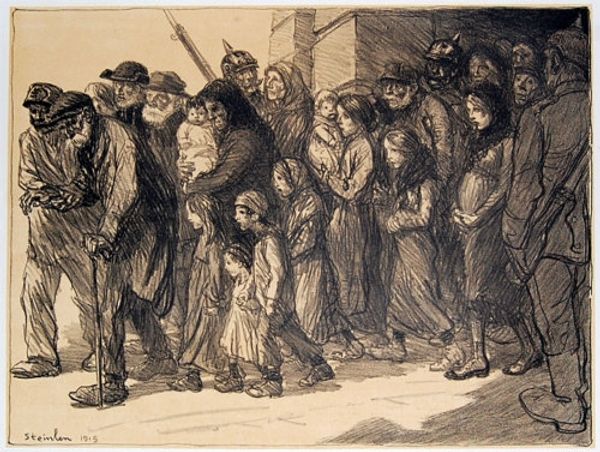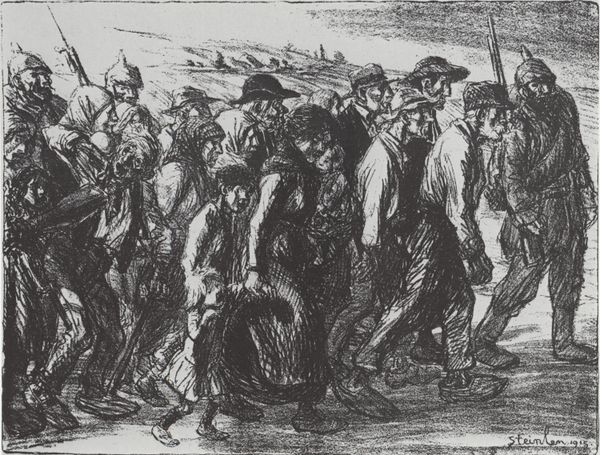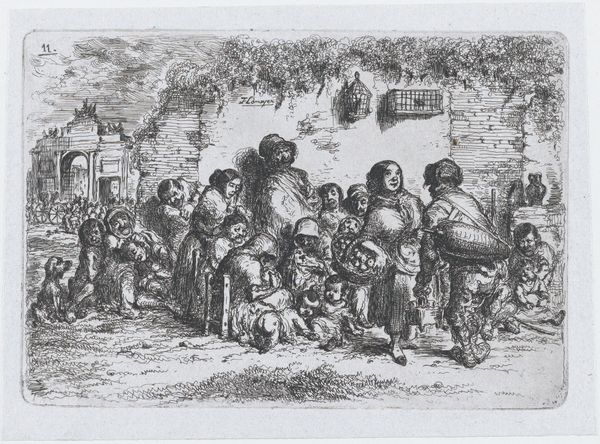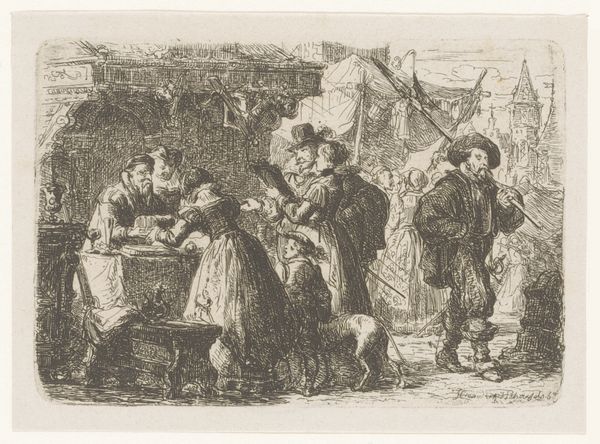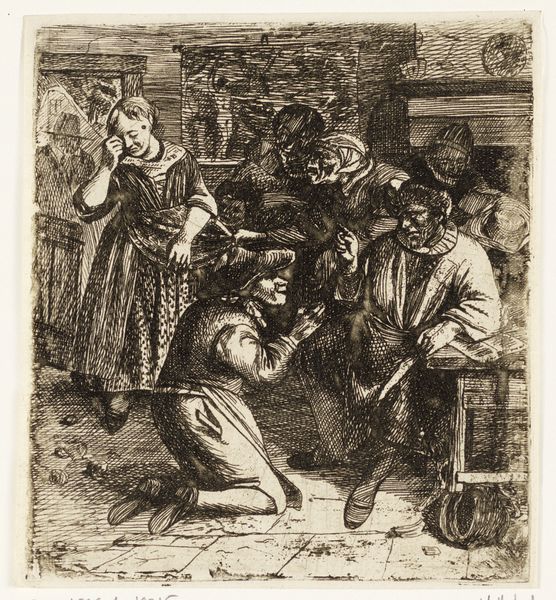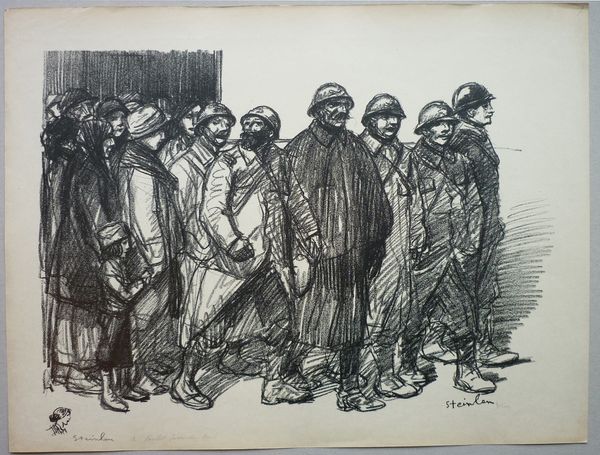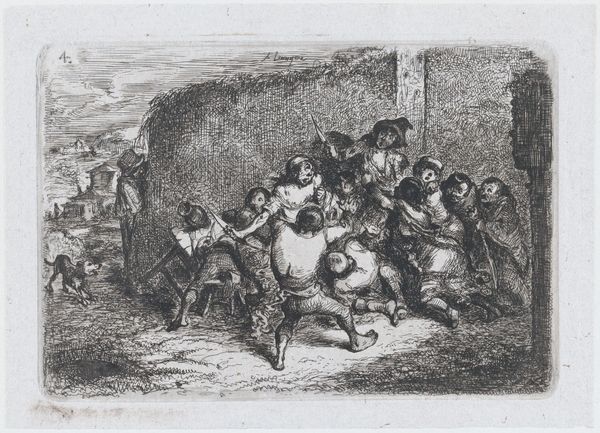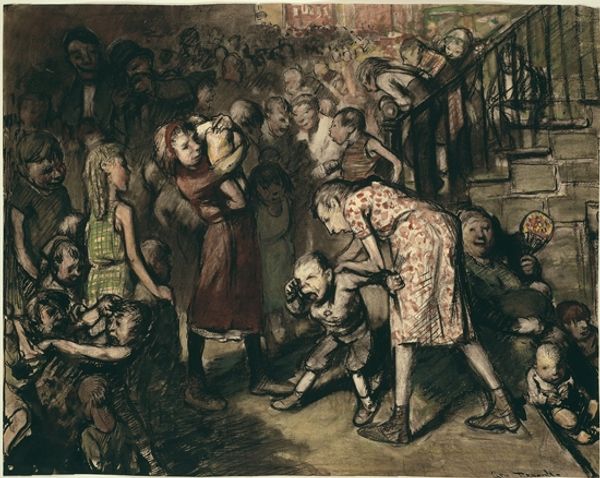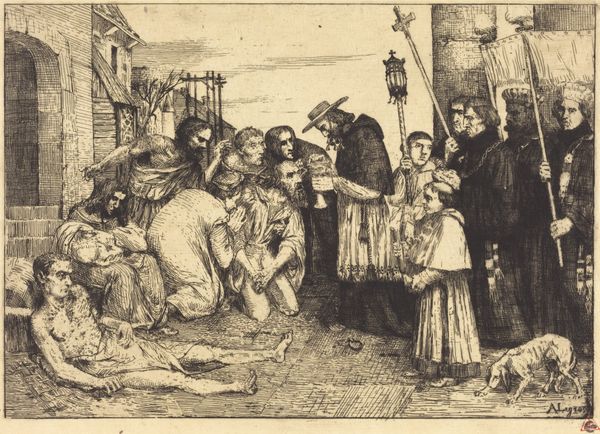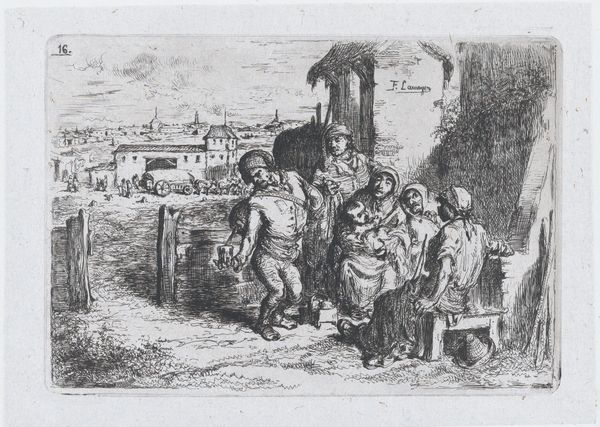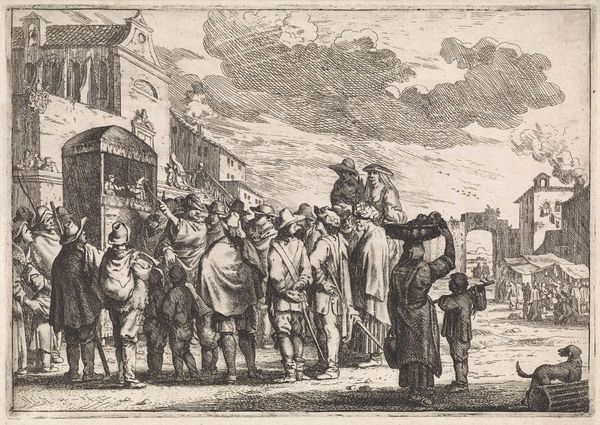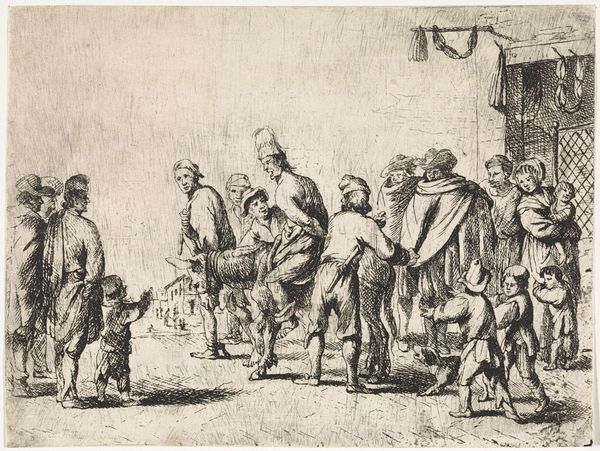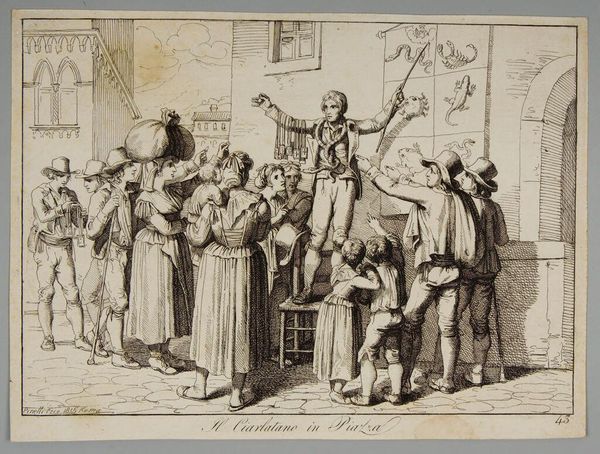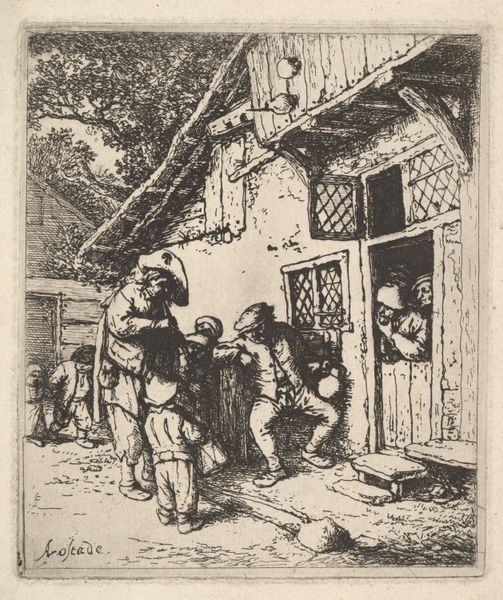
drawing, print, ink, pen
#
drawing
#
narrative-art
#
pen drawing
# print
#
pen illustration
#
pen sketch
#
social-realism
#
ink
#
group-portraits
#
expressionism
#
pen
#
history-painting
#
realism
Copyright: Public domain
Editor: This pen and ink drawing, "Les Otages Civils," by Théophile Alexandre Steinlen, from 1915, evokes such a heavy feeling. The mass of figures seem to be pushing forward, but they all carry such despair. What do you see in this work? Curator: The overwhelming sense of shared suffering. Notice how Steinlen groups them, a technique echoing historical depictions of religious processions. These are modern-day martyrs, civilians caught in the machinery of war. The very act of portraying them becomes a sacred one. The symbolic weight isn't in individuals but the collective wound they represent. Consider the image as an entablature from classical architecture, and you see repeated heads like acanthus leaves - but what narrative unfolds within that frieze? Editor: A narrative of dispossession and displacement, certainly. Is there an intended psychological impact here? Curator: Absolutely. It uses recognizable imagery of exodus – echoes of biblical stories of persecution. Remember, these images circulated widely as prints; this reinforces the trauma, imprinting itself on the collective psyche. It forces a cultural memory to acknowledge the victims. Think of Goya’s “Disasters of War;” there is a through line. What do you think this symbolism meant for viewers at the time? Editor: I imagine it was both a stark reminder of the conflict’s cost and a call to empathy, fostering solidarity across social lines through shared imagery of sorrow. Curator: Precisely. The visual symbols employed transcend specific battles, tapping into archetypal anxieties surrounding human conflict. They were refugees then; that symbol resonates powerfully still. Editor: Seeing the threads that connect it to earlier art, as well as to current issues, makes it more poignant. Thanks for expanding my understanding of its meaning. Curator: And thank you, I feel reminded of how these artistic interpretations continue to reflect our humanity today.
Comments
No comments
Be the first to comment and join the conversation on the ultimate creative platform.
